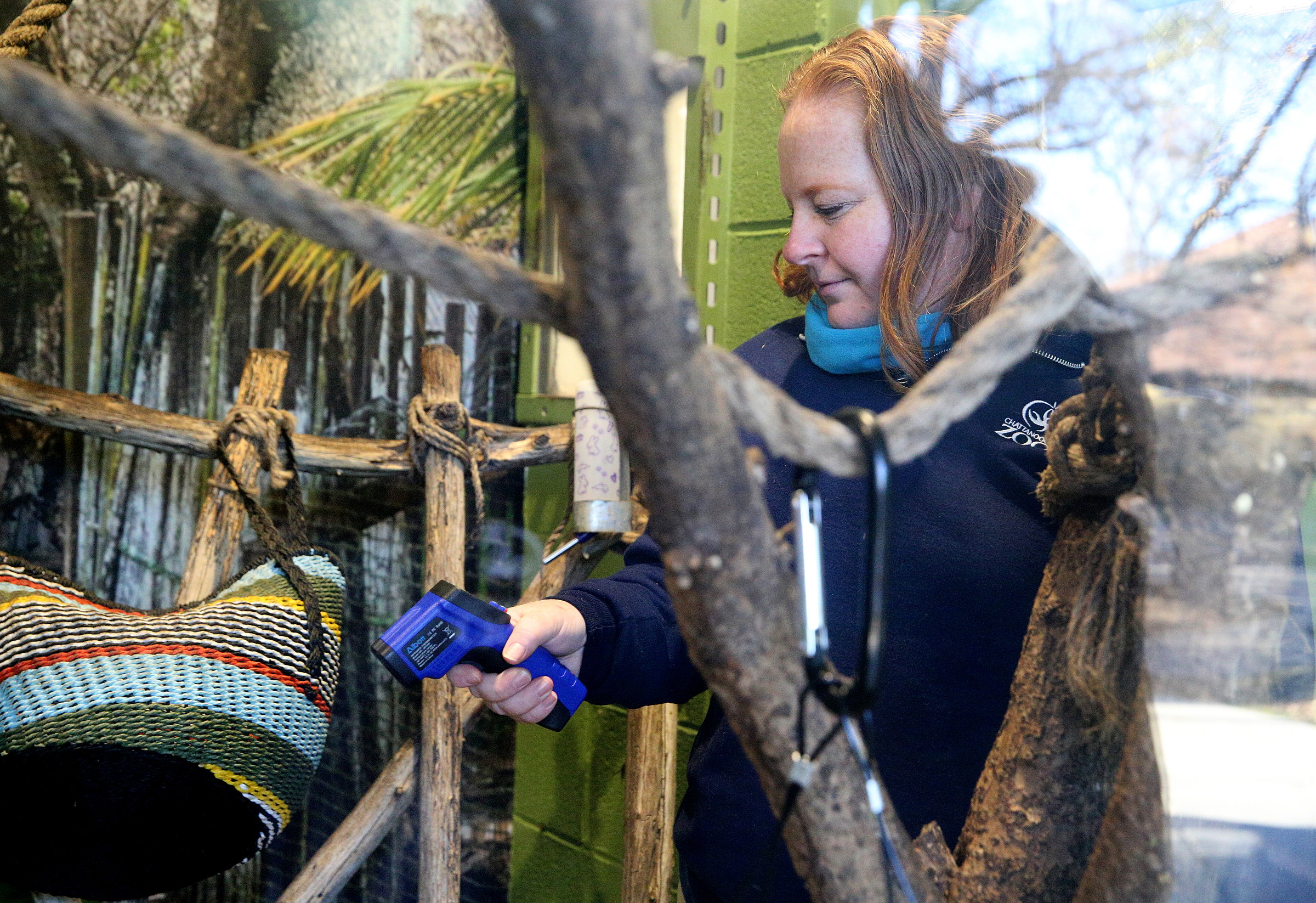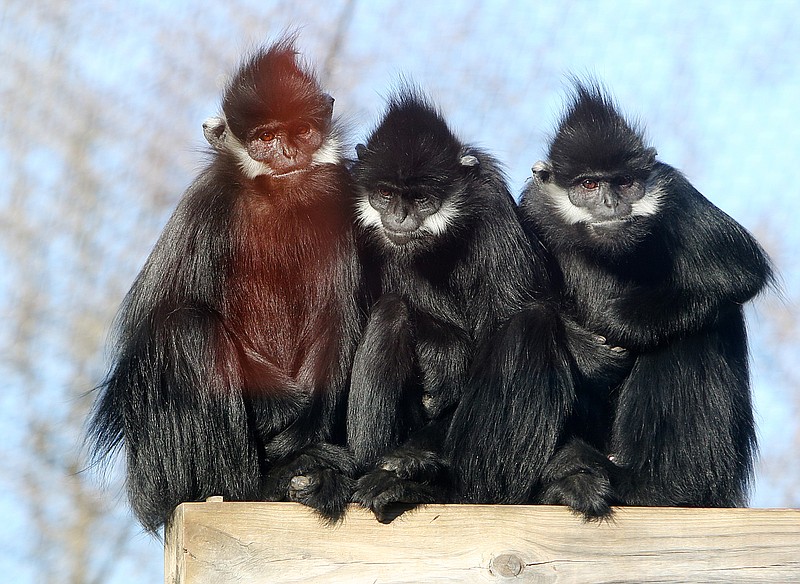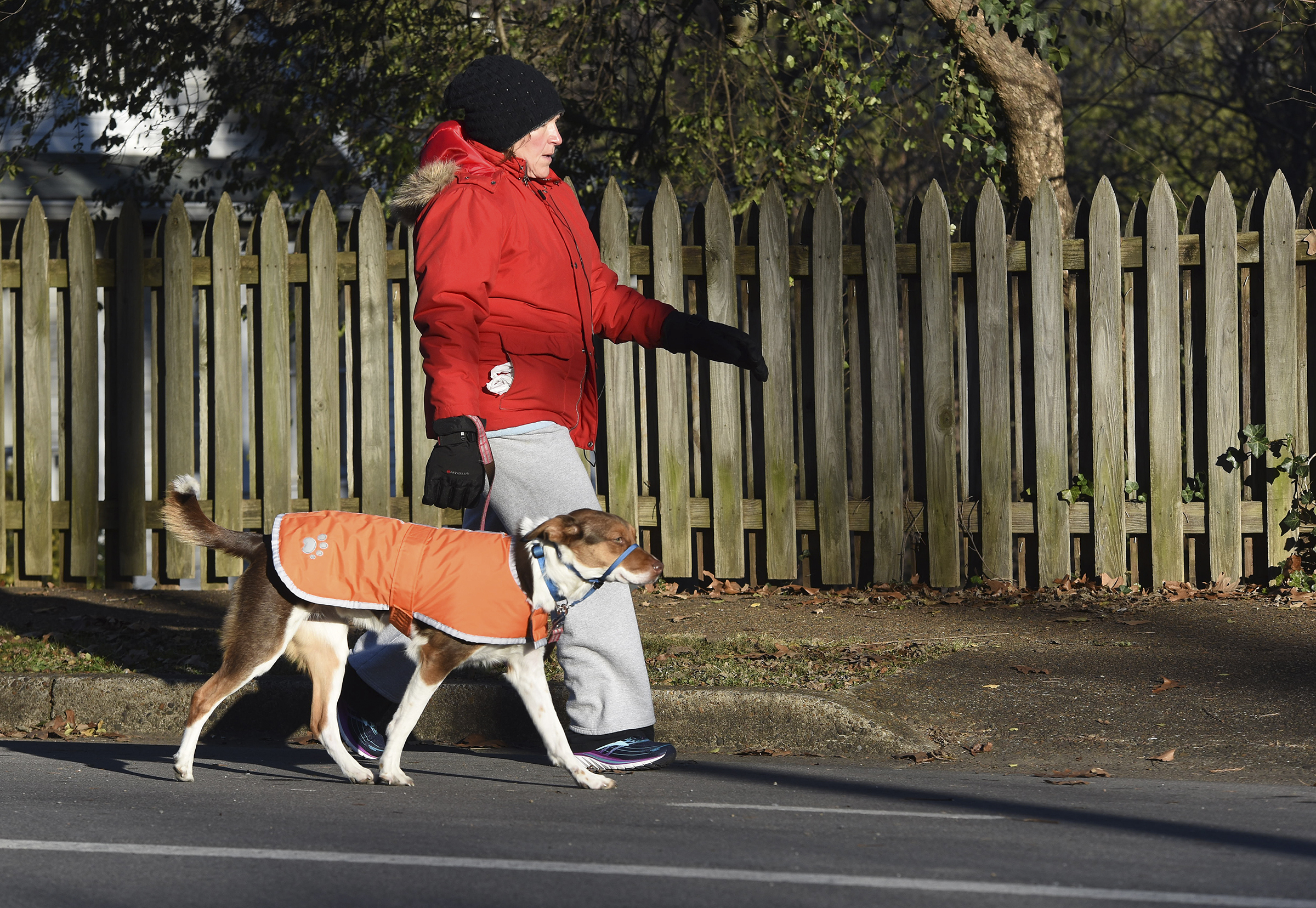7-day forecast
Wednesday: 38/19Thursday: 29/14Friday: 31/19Saturday: 37/22Sunday: 44/37Monday: 49/35Tuesday: 40/23Source: WRCB-TV, Channel 3
The South is struggling with the cold, Arctic air that has beset much of the country.
Temperatures dropped into the single digits in many areas throughout the Tennessee Valley on Tuesday morning, and as homes and businesses cranked up their furnaces and heaters in response, TVA expected its highest winter demand for power since 2015.
TVA spokesman Scott Fiedler said the utility doesn't expect to have any trouble meeting the peak demands this week. But TVA urged consumers to limit their consumption and their heating bills by making sure their windows and doors are sealed and reducing any unnecessary lighting, long showers or other unnecessary power consumption.
"We're able to meet the demand, but we appreciate the public's help in trying to limit some of their energy use, not only to limit our peak demand but to save money and keep more money in people's pockets," Fiedler said.
The temperatures have been and will continue to be 15-20 degrees below normal for most of the week, weather forecasters have said, but they're not projected to be record-breaking. Nonetheless, animal shelters are urging pet owners to bring their dogs inside.
 Lacey Hickle, Chattanooga Zoo assistant curator and veterinary technician, shows how temperatures are monitored inside cages Tuesday, Jan. 2, 2017 at the Chattanooga Zoo at Warner Park in Chattanooga, Tenn. Employees at the zoo prepare animal cages for colder weather in some cases by moving them indoors, providing heaters and measuring temperatures at different times throughout the day.
Lacey Hickle, Chattanooga Zoo assistant curator and veterinary technician, shows how temperatures are monitored inside cages Tuesday, Jan. 2, 2017 at the Chattanooga Zoo at Warner Park in Chattanooga, Tenn. Employees at the zoo prepare animal cages for colder weather in some cases by moving them indoors, providing heaters and measuring temperatures at different times throughout the day. Heating safety tips
› Heating equipment is one of the leading causes of home fires in Georgia. Portable space heaters, open fireplaces, and wood stoves can be dangerous if misused. Keep them away from curtains, draperies, and other flammable material. Make sure heaters have adequate ventilation, and always follow the manufacturer’s operating instructions.› Have your home heating unit checked annually to be sure it is working efficiently and safely. Make sure all fuel-burning appliances and fireplaces are properly vented. If you suspect a gas leak in your home, leave immediately and call the gas company from elsewhere.› If you use kerosene space heaters, make sure each heater has an automatic shut‑off in case it tips over. Use only K‑1 kerosene in a space heater; gasoline can cause an explosion. Wait until the heater has cooled and take it outside before refueling.› Install an adequate number of smoke alarms. Most fatal fires start between 11 p.m. and 6 a.m., while the family is asleep. The advance warning of a smoke alarm may mean the difference between life and death. Nine out of 10 fire victims are already dead before the fire department is even called, mainly from smoke and toxic gases. Also, Georgia law requires a smoke alarm in every home. If you already have smoke alarms, don’t forget to replace the batteries annually.› Each household should have a well-rehearsed family escape plan. All rooms, especially bedrooms, should have two escape routes. Have a predetermined meeting place outside the house so you can be sure everyone is out safely.Source: Georgia Insurance and Safety Fire Commissioner’s Office
"[Dogs] need to be indoors. They are not prepared for this weather down here," Jaime McAloon, executive director for McKamey Animal Center, said. "Especially the most vulnerable dogs are going to be the slick-coated dogs. Those tend to be your pitbulls. They do not have the fur to keep them warm in this kind of weather, unless they have ample bedding and protection from the elements."
McAloon said one of the biggest problems his staff members encounter is telling people their dog doesn't have proper shelter, even if the dog is sleeping inside a garage or shed.
"What they don't understand is the dog has to sleep in a small area, where he is protected from the elements and the wind so that he can retain the body heat that he's putting off," she said. "He can't do that in a garage."
The cold is also having a slight effect on animal shelters' operations. Bob Citrullo, executive director of the Humane Educational Society, said the cold is limiting the amount of time dogs can spend outside, though it's not causing too much of a problem.
Both McKamey and HES provide bedding and outdoor dog houses for people who can't afford them, but they're running out and are taking donations.
"We go through a lot of them this time of year," McAloon said. "Even though we encourage [people] to keep the dogs indoors, it's not realistic for some people. So we definitely want to make sure these animals have something to keep warm in."
At the Chattanooga Community Kitchen, doors to the cold weather shelter have been open since mid-December and during the day, people can stay in the day center to get out of the cold. When temperatures drop, more people naturally come in, said David Costello, director of community engagement. But the shelter has never run out of space, and the number of people staying overnight is falling right into line with regular trends.
"We always make room," he said. "We've never turned anyone away and make sure that we always find a place, no matter how many we have."
The frigid weather has also caused a few headaches for the people working behind the scenes in the city. Public Works employees are having to park their trucks in a heated facility to make sure the hydraulic systems stay warm, Deputy Administrator Donald Stone said. Employees have also been advised to take extra breaks if needed to warm up in the vehicles.
Another issue is leaf collection. "If there's any moisture in those leaves, they almost become like concrete when you're trying to get them up," Stone said.
Highs this week will remain below freezing, creeping up to around 40 degrees on Wednesday before another wave of cold air comes in late Wednesday, dropping temperatures back down to the teens and 20s. By Jan. 7 and 8, though, highs will reach a toasty 40-50 degrees for some areas.
Other areas across the Southeast have been hit harder, reports show.
A prison in Nashville lost its main heating source on New Year's Day, leaving officials having to keep inmates and employees warm with extra blankets and portable heaters. Riverbend Maximum Security Institution, which holds all of Tennessee's male death row inmates, lost hot water pressure Monday, causing its boiler to go offline.
In Atlanta, many people are going to the emergency room seeking treatment for hypothermia or other existing conditions that have been worsened by the cold.
Along the Georgia coast, the National Weather Service on Tuesday issued a winter storm watch, with a low-pressure system in the Atlantic Ocean threatening to bring ice and freezing rain to the area late Tuesday night and Wednesday.
The National Weather Service said Savannah could see up to 2 inches of snow and sleet Wednesday. Savannah hasn't seen any measurable snowfall since Feb. 12, 2010, when 0.9 inches fell.
Staff Writer Dave Flessner and The Associated Press contributed to this story.
Contact staff writer Rosana Hughes at rhughes@timesfreepress.com or 423-757-6327 with tips. Follow her on Twitter @HughesRosana.
Pet safety tips
› If it’s too cold for you, it’s probably too cold for your pet, so keep your animals inside. If left outdoors, pets can freeze, become disoriented, lost, stolen, injured or killed. In addition, don’t leave pets alone in a car during cold weather, as cars can act as refrigerators that hold in the cold and cause animals to freeze to death.› Repeatedly coming out of the cold into the dry heat can cause itchy, flaking skin. Keep your home humidified and towel dry your pet as soon as he comes inside, paying special attention to his feet and in-between the toes. Remove any snow balls from between his foot pads.› Never shave your dog down to the skin in winter, as a longer coat will provide more warmth. If your dog is long-haired, simply trim him to minimize the clinging ice balls, salt crystals and de-icing chemicals that can dry his skin, and don’t neglect the hair between his toes. If your dog is short-haired, consider getting him a coat or sweater with a high collar or turtleneck with coverage from the base of the tail to the belly. For many dogs, this is regulation winter wear.› Bring a towel on long walks to clean off stinging, irritated paws. After each walk, wash and dry your pet’s feet and stomach to remove ice, salt and chemicals—and check for cracks in paw pads or redness between the toes.› Bathe your pets as little as possible during cold spells. Washing too often can remove essential oils and increase the chance of developing dry, flaky skin. If your pooch must be bathed, ask your vet to recommend a moisturizing shampoo and/or rinse.› Massaging petroleum jelly or other paw protectants into paw pads before going outside can help protect from salt and chemical agents. Booties provide even more coverage and can also prevent sand and salt from getting lodged between bare toes and causing irritation. Use pet-friendly ice melts whenever possible.› Like coolant, antifreeze is a lethal poison for dogs and cats. Be sure to thoroughly clean up any spills from your vehicle, and consider using products that contain propylene glycol rather than ethylene glycol.› Pets burn extra energy by trying to stay warm in wintertime. Feeding your pet a little bit more during the cold weather months can provide much-needed calories, and making sure she has plenty of water to drink will help keep her well-hydrated and her skin less dry.› Make sure your companion animal has a warm place to sleep, off the floor and away from all drafts. A cozy dog or cat bed with a warm blanket or pillow is perfect.Source: ASPCA

